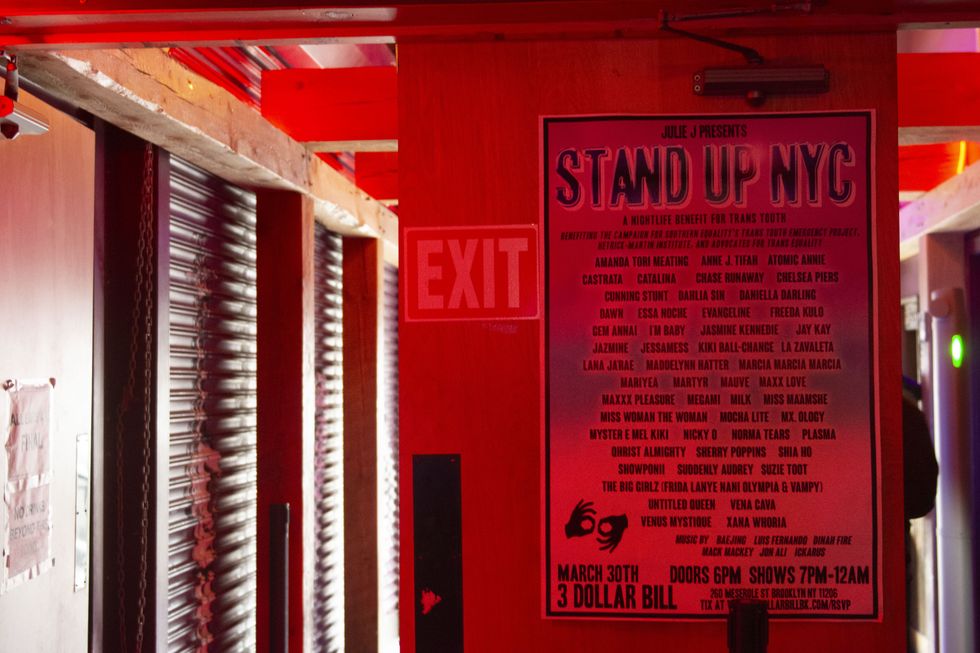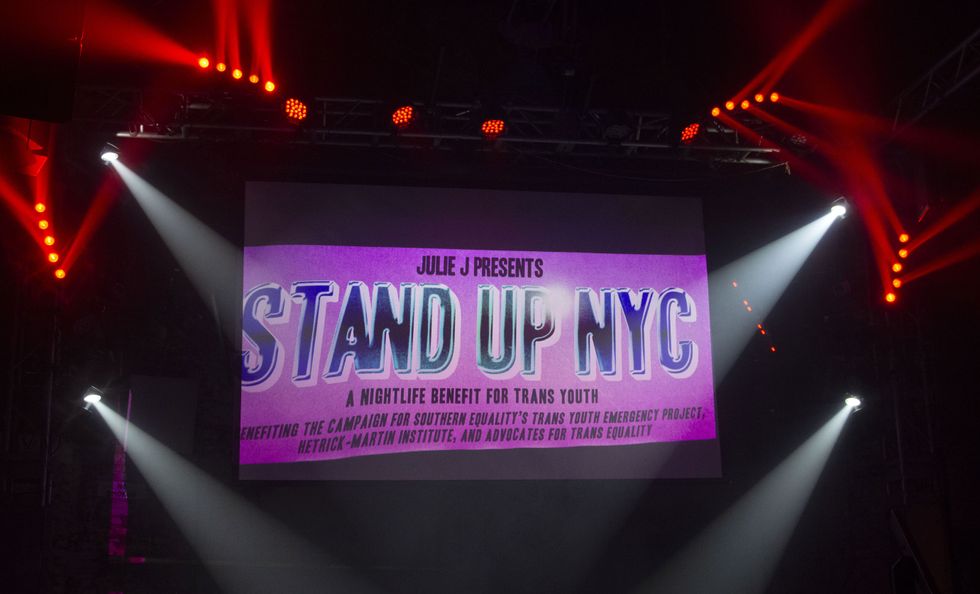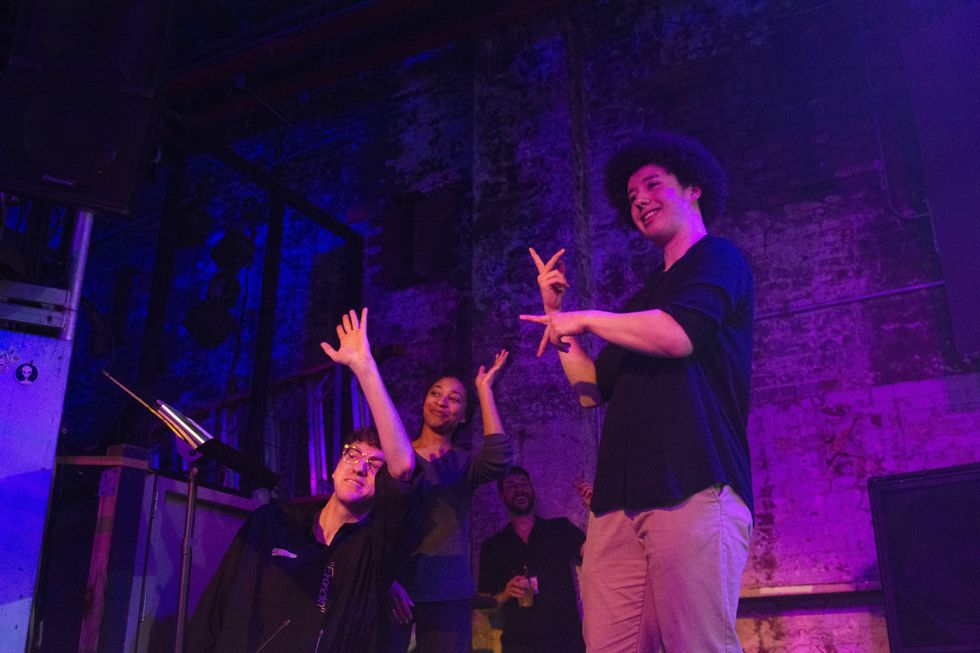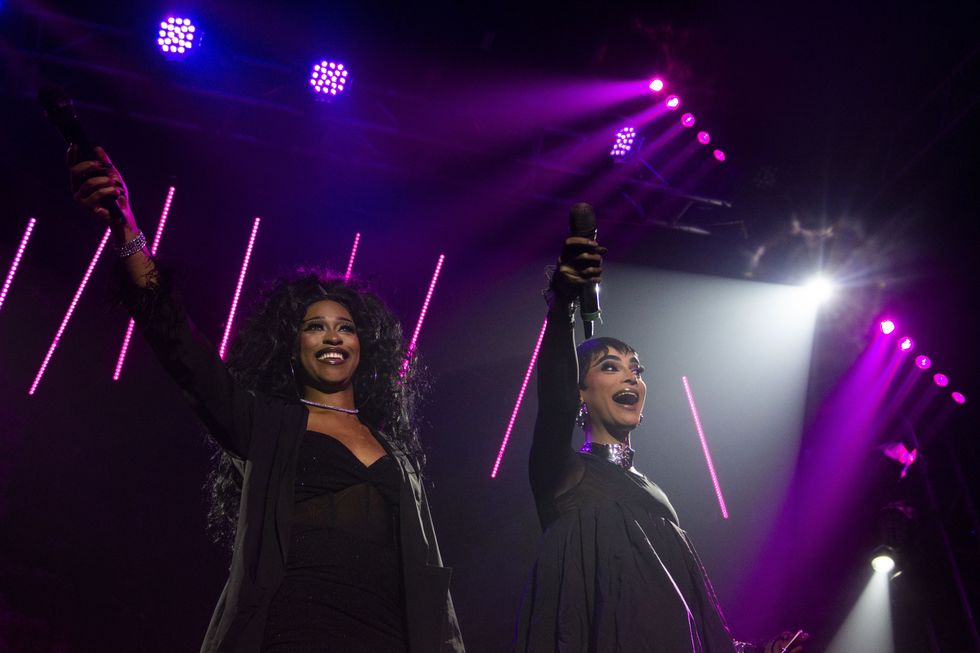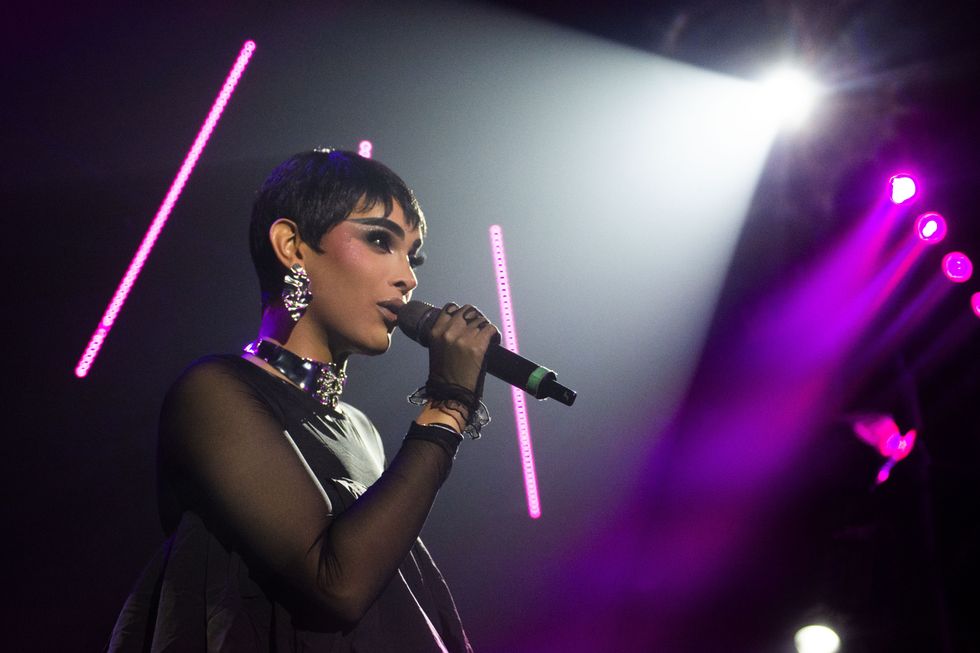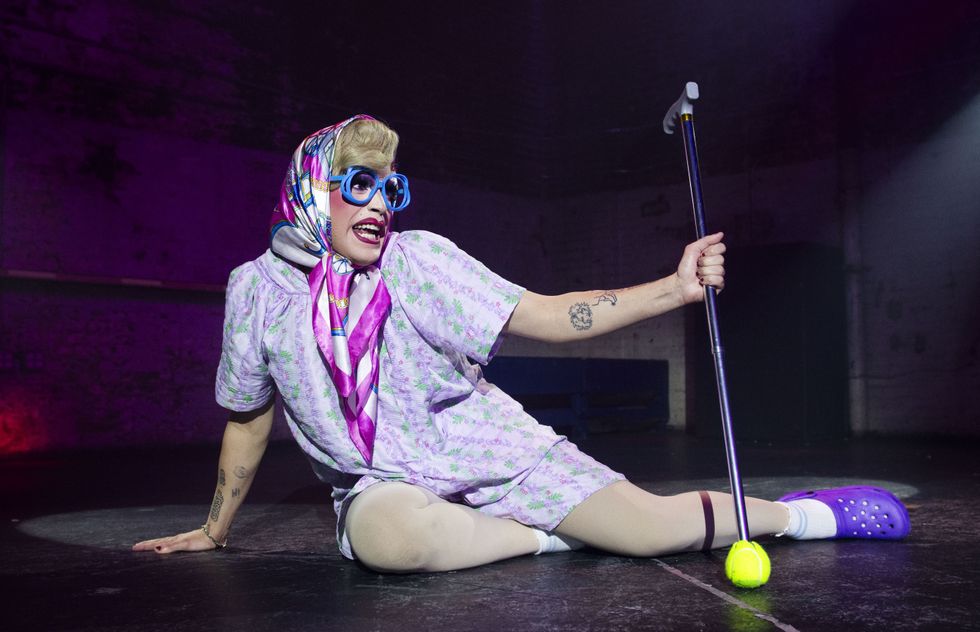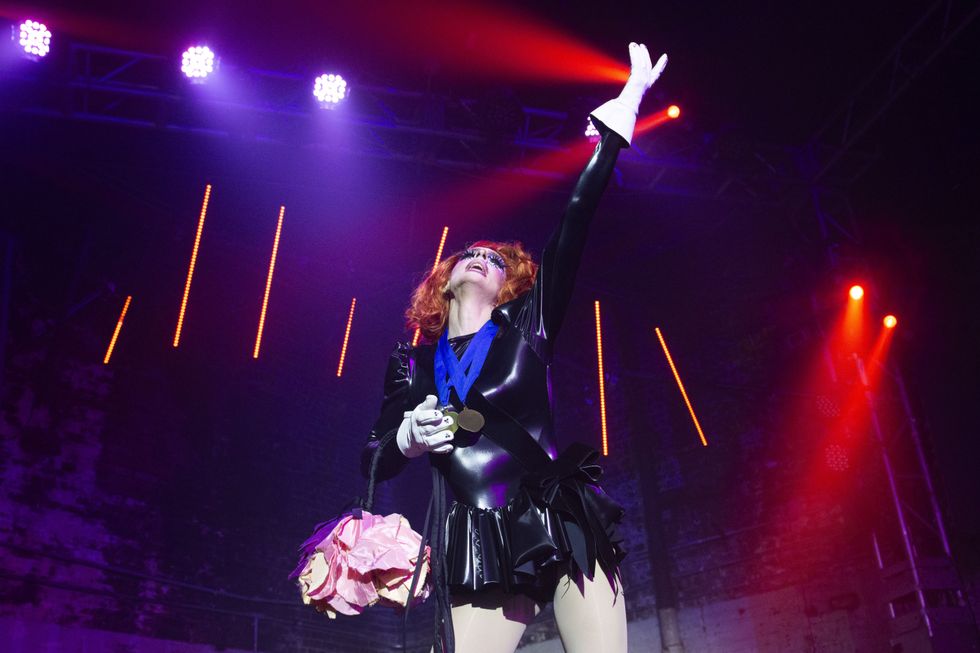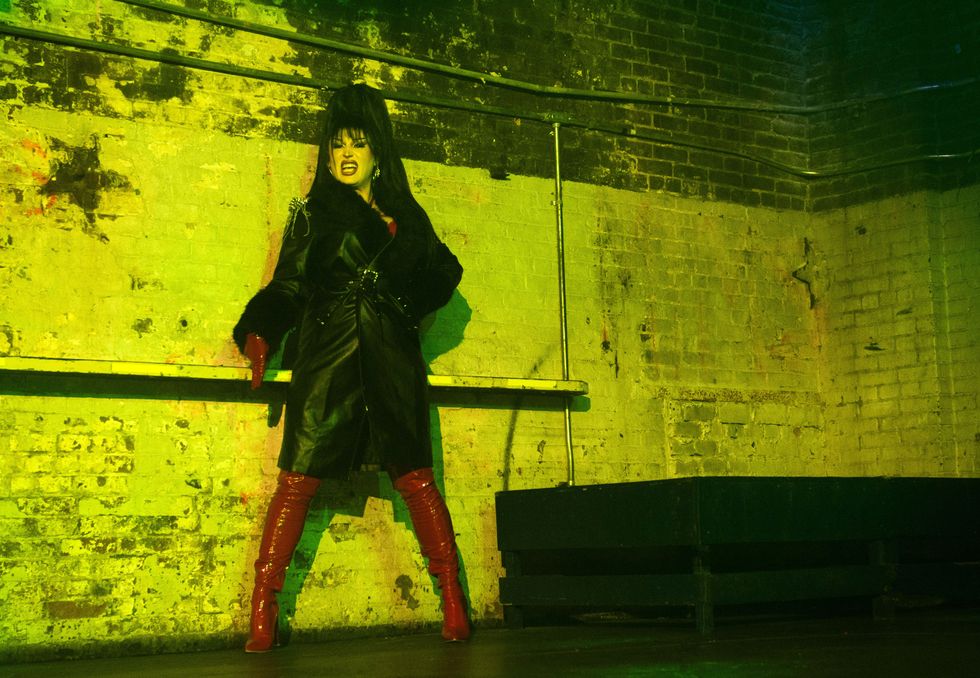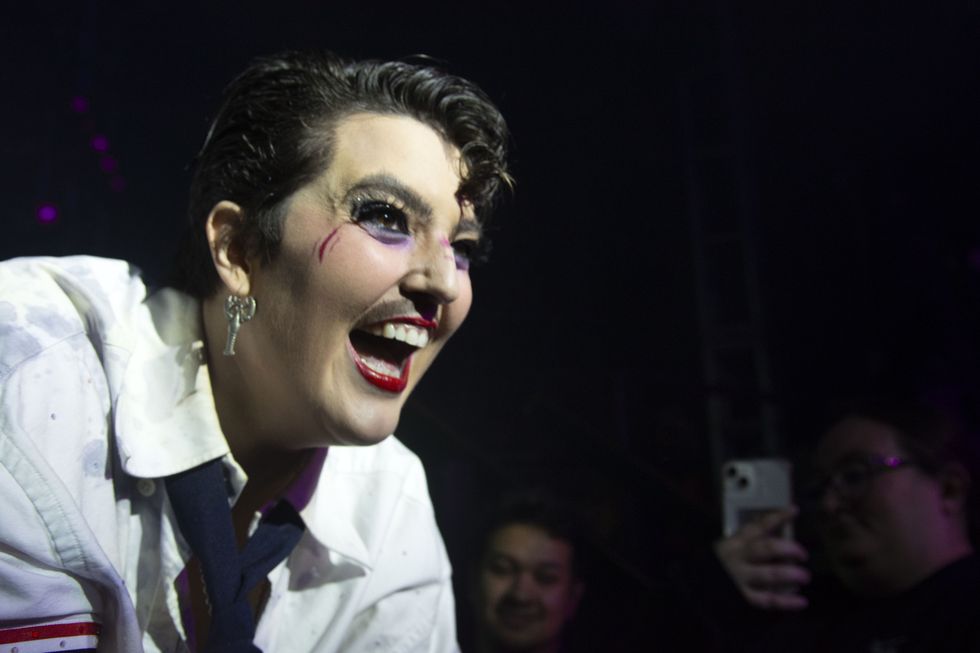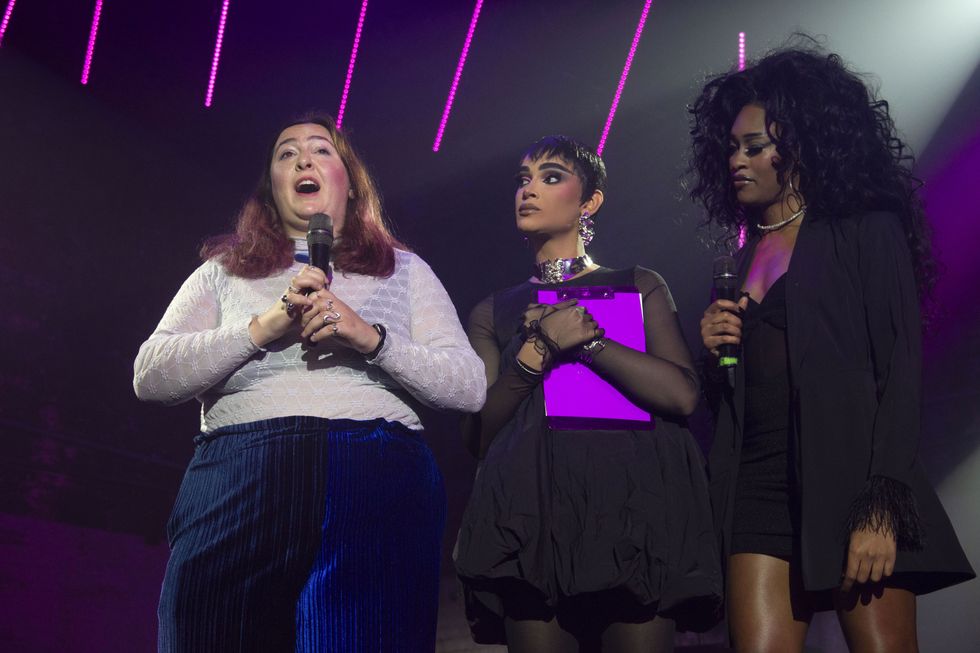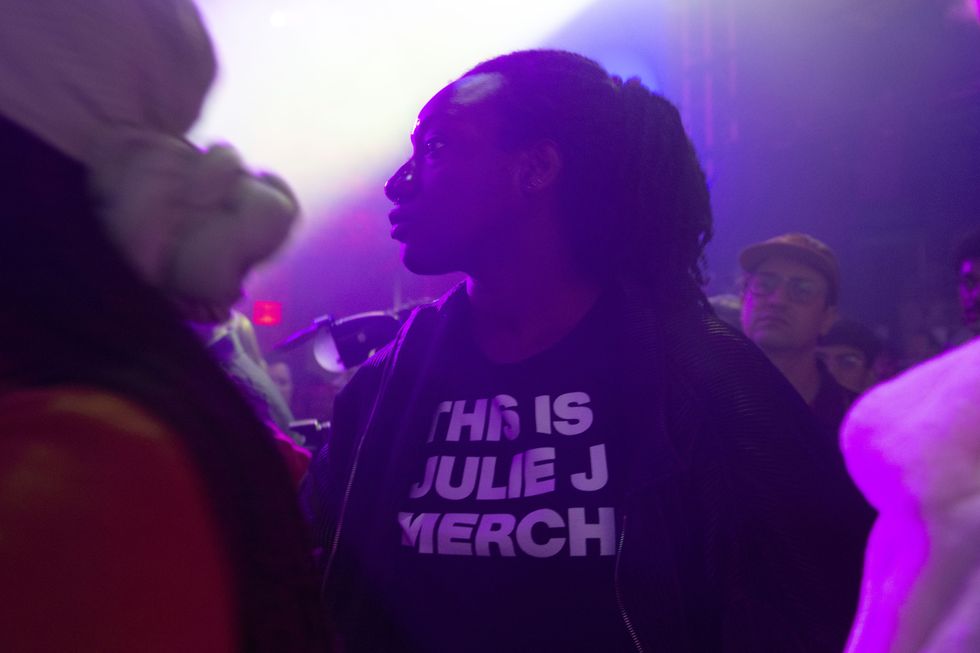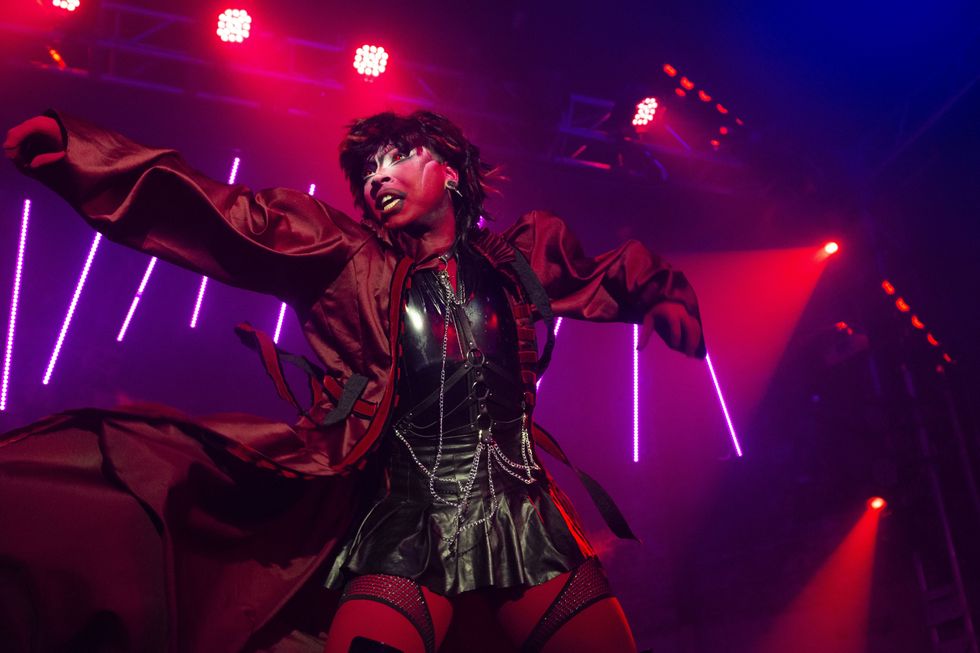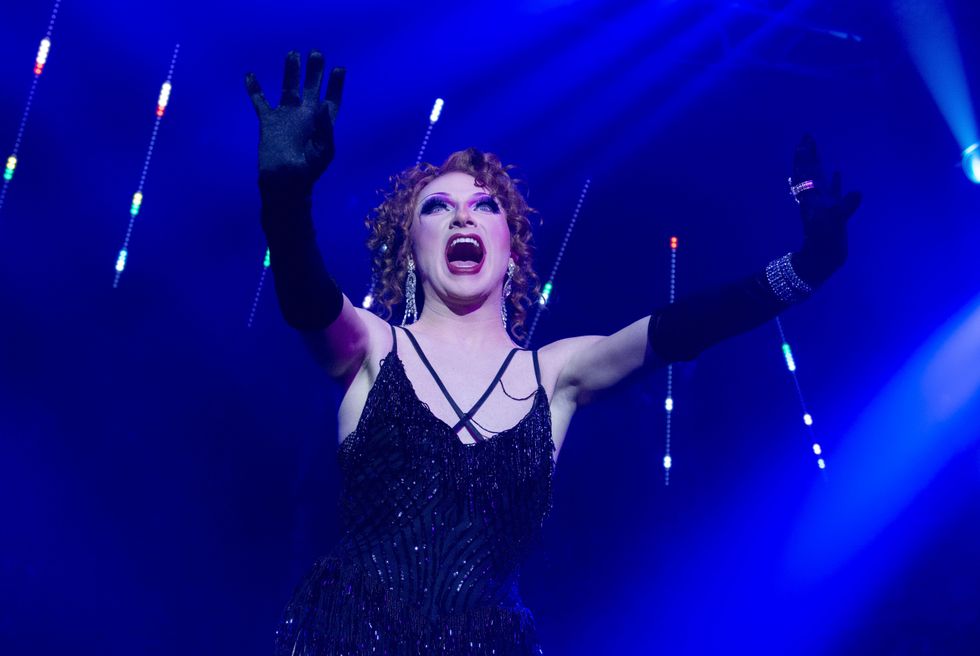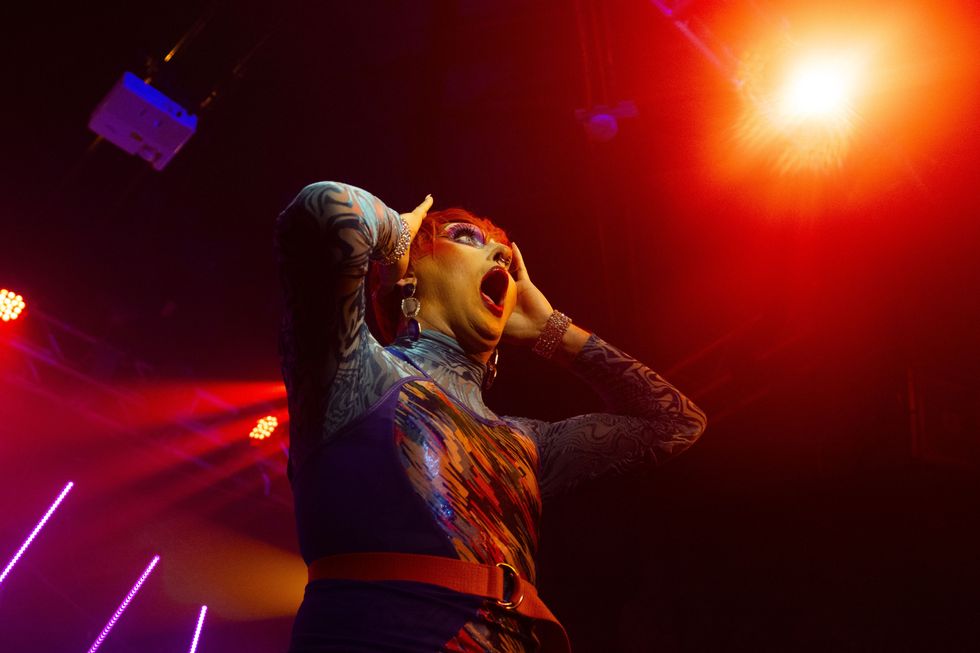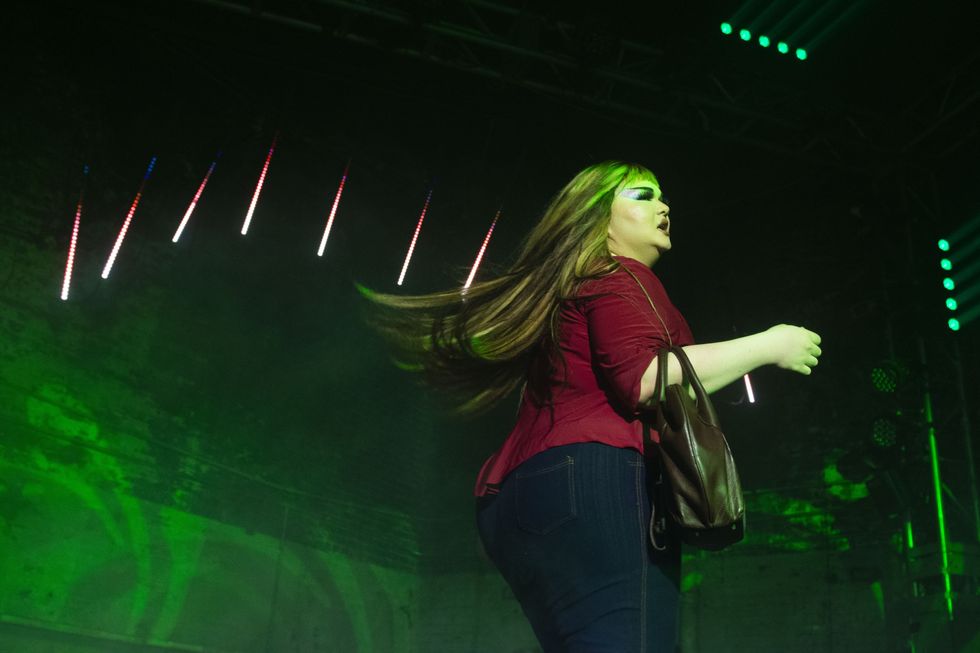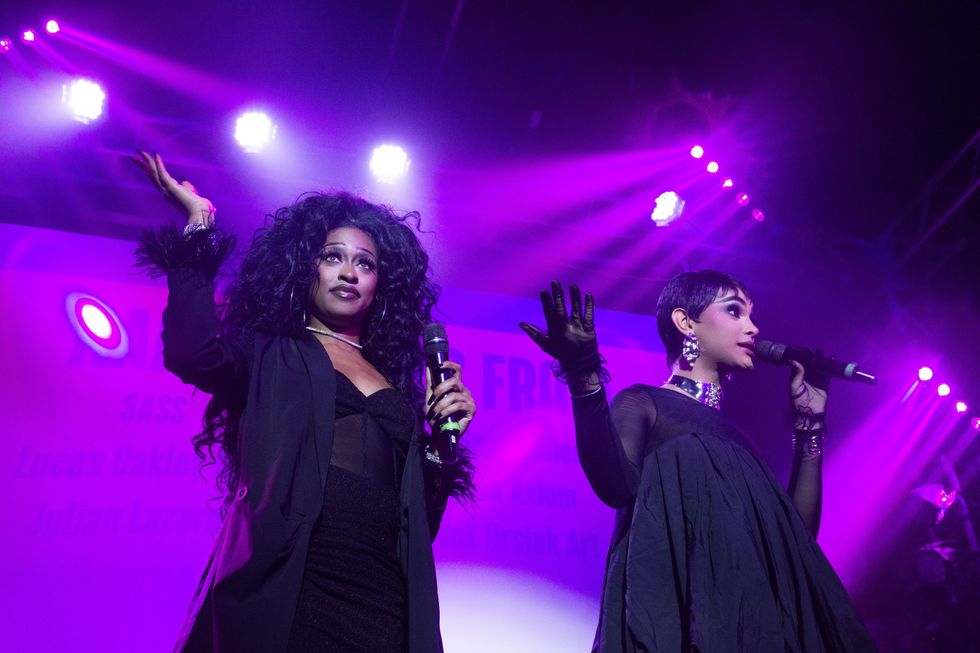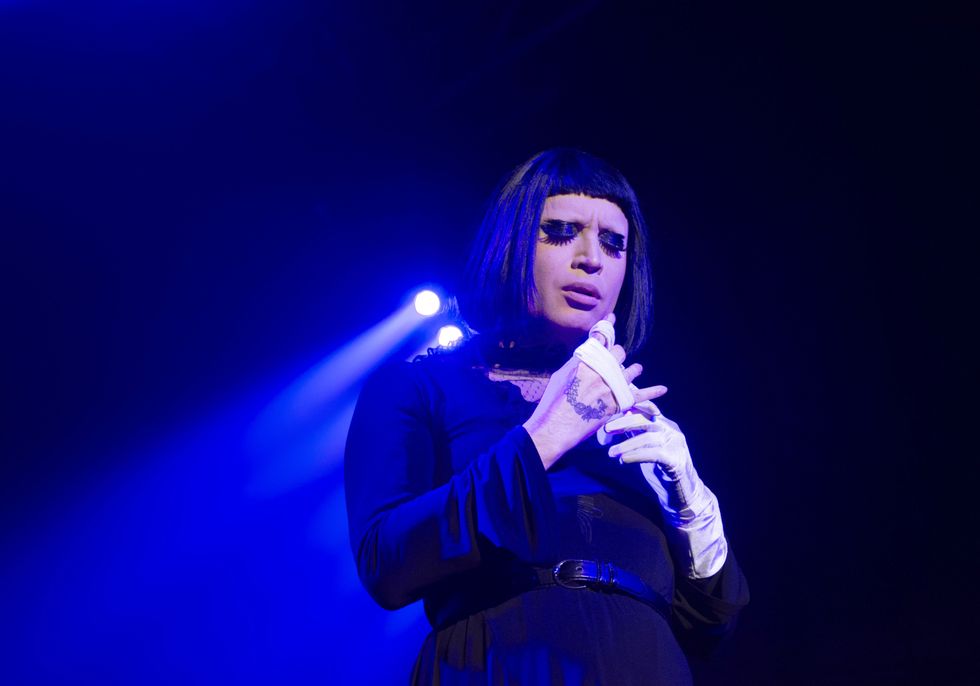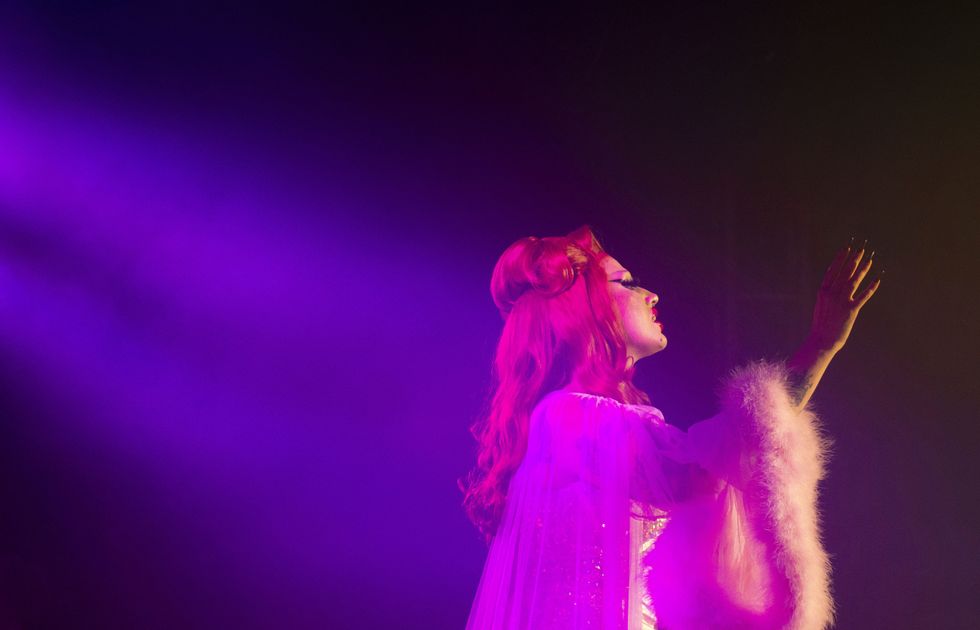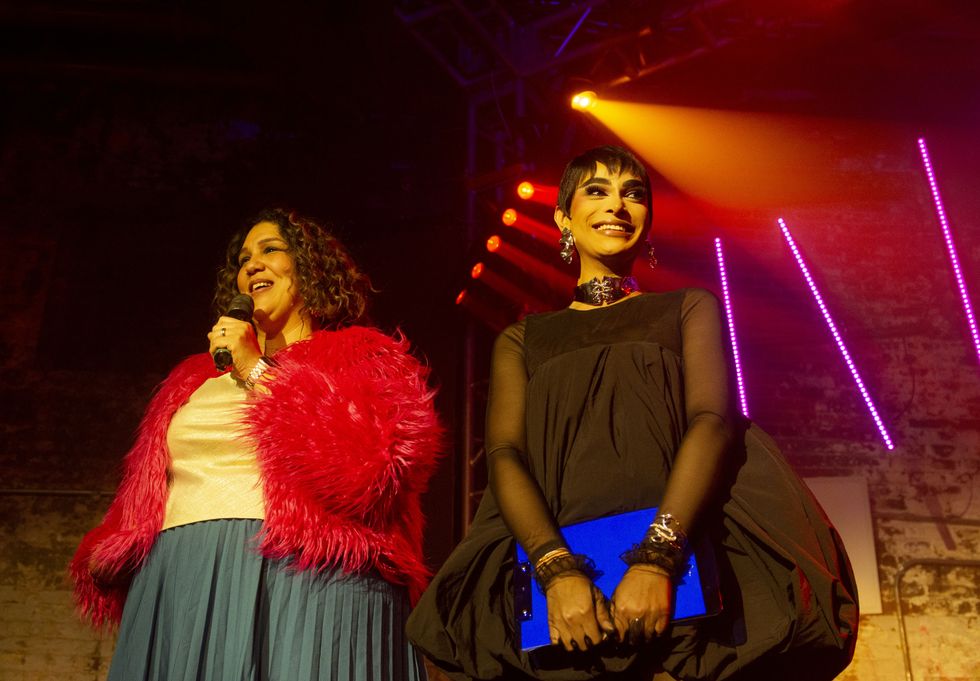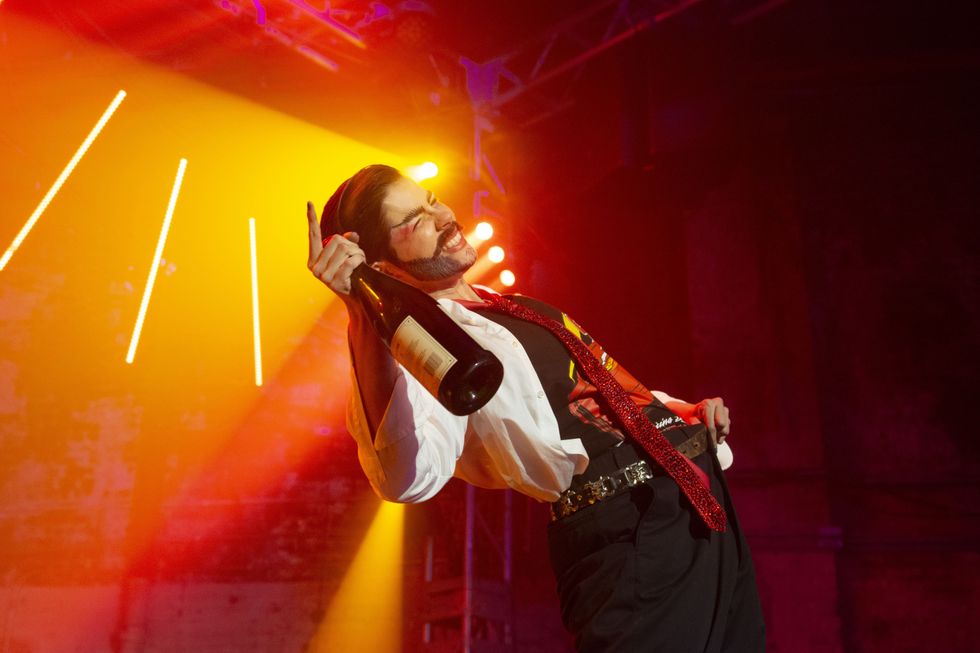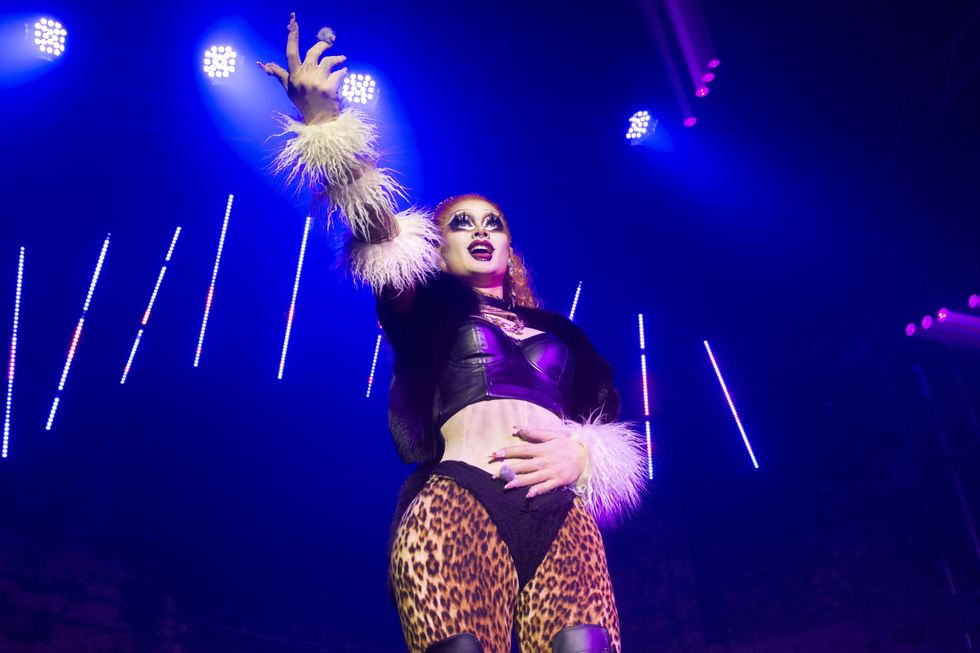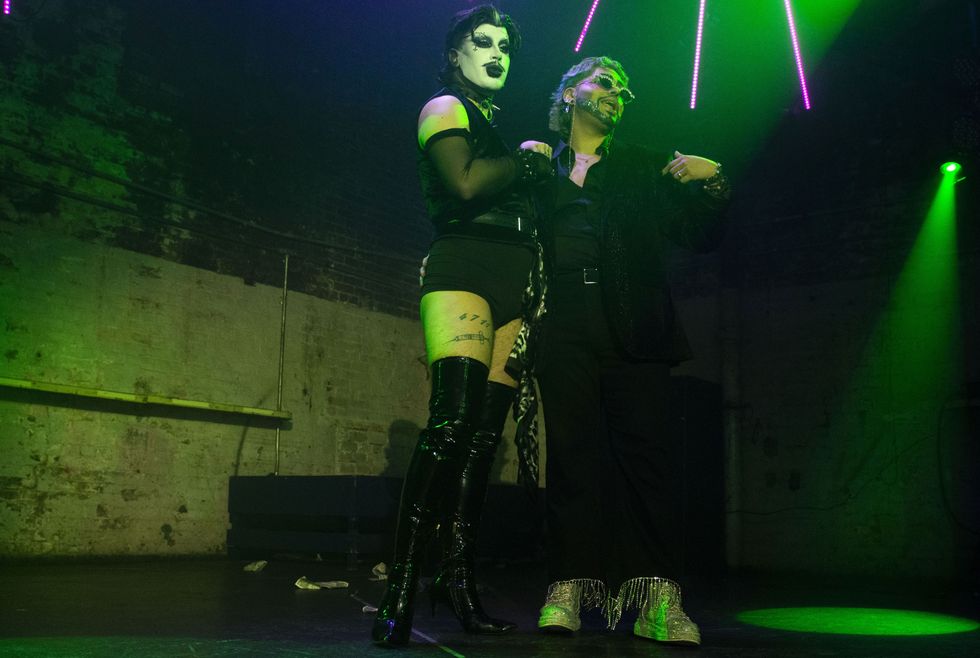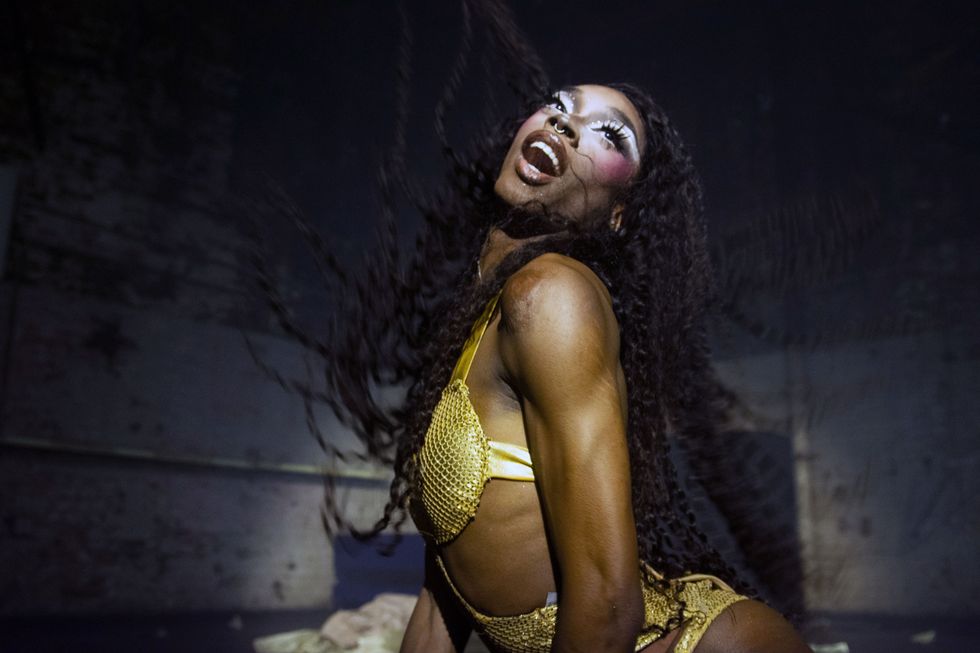One of the most dynamic performers in rock history, Freddie Mercury was the beating heart of legendary band Queen. Mercury was a trained pianist and singer with impressive vocal range. In the early 1970s, he met the musicians with whom he would form Queen. Mercury’s iconic, vibrant showmanship blended with the band’s genre-bending sound–“classical to music hall, from glitter to prog rock, eventually even making influential forays into funk and disco,” as AllMusic’s Greg Prato shared–made them both unique and undeniable.
When Queen formed, they were well aware of the multitude of meanings in their name. "It's very regal obviously, and it sounds splendid. It's a strong name, very universal and immediate. I was certainly aware of the gay connotations, but that was just one facet of it,” Mercury shared in an interview, according to American Songwriter.
Mercury, who was queer, was known for an energetic and theatrical stage presence, but was a private person offstage. He often waved away questions about his sexuality with a quip, if he engaged them at all. Sadly, Mercury found he had contracted AIDS in 1987. After battling the illness for some four years, he passed away in 1991. Mercury had left his mark on music and culture, however, and Queen influenced countless performers and bands that followed.
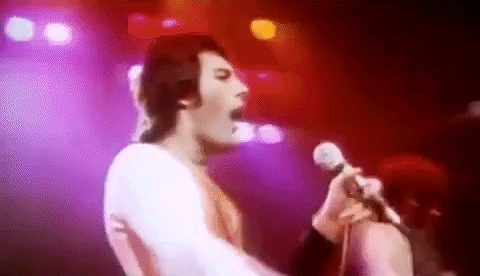
Queen also recently influenced a young man named Owen, who at four and a half years old has joined the legion of Freddie Mercury and Queen fans the world over. Owen is the son of my dear friend Alissa. Tiring of music geared toward children, she and her husband Ian decided to begin Owen’s rock education, and the one band stuck in particular. For Alissa, a part-time therapist, sharing Queen with Owen also has layers–in a time in American culture where LGBTQ+ citizens face high levels of discrimination, she sees showing him Queen concerts as a form of resistance to anti-queer messaging. Alissa is part of a generation of parents making similar decisions–enough that great figures of queer history are now embodied in books like the Little People, Big Dreams series, among others (Owen’s Freddie Mercury version is on the way to his house).
Alissa and I spoke about Freddie Mercury, freedom, and whether or not the iconic singer knew The Hulk.
How did Owen hear Queen for the first time?
We're working on his rock music education in general. You can only listen to so much Kidz Bop before you lose your mind. One day, he got into the car while I was playing some heavy metal I enjoy, and he wanted to listen. We progressed through rock genres, and my husband and I made a playlist of family-friendly rock songs for Owen. That's how he heard Queen. It really grabbed him more than the other bands did. He asked to listen to more Queen and then he would ask, “Who sings this song?” And I would say, “Freddie Mercury sings this song.” And then we'd listen to another Queen song. He'd say, “Who sings this song?” And I'd be like, “Freddie Mercury again, bud! Turns out it's the same guy! Can you believe it?” [laughs] Ian and I both grew up listening to this kind of music, to Queen in particular, so we feel like it’s part of the core rock curriculum for our children [laughs].
When did you realize Owen was a fan?
Once he connected the dots that the same guy was singing all the songs he liked, he said, “I would like to meet Freddie Mercury someday.” I said to him, “You know, bud, this is sad, but Freddie Mercury passed away many years ago from a disease that we have good treatments for now, but we didn't have treatments for back then. He was really meaningful to a lot of people all around the world, so it was very sad when he passed away. Unfortunately you can't meet him, but we can watch a concert of him singing.” Owen was totally down for that. Owen would tell me what song he wanted to see live and I looked up concerts for him on YouTube, like the Live Aid concert [below] and different live shows. He will still periodically ask me, “Can I watch Freddie sing Killer Queen? Can I watch Freddie sing Another One Bites the Dust?" He pays very close attention and he’s very quiet when Queen is on. I can hear the wheels turning. After he had been into Queen for a while, he would tell me a fact about Freddie Mercury that's made up, like, “Freddie Mercury knows the Hulk!” And I'm like, I don't think so...[laughs] He'll sometimes give us a song parody, like the other night, when we were all in [my daughter] Emma's room together, it was 'Another Baby Bites the Dust,' which I think just goes to say that Owen doesn't understand what it means to bite the dust [laughs]. I mean, his sister is teething, so maybe it's a very literal interpretation.
You mentioned seeing Owen’s interest in Freddie Mercury and Queen as a way to open up conversations in the future about homophobia and the AIDS crisis. Can you talk about that?
It's very important to think about living in a patriarchal society and what to do if you are raising one of the potential oppressors [laughs]. How do you counter toxic masculinity and patriarchal thinking? I think one of the key pieces is making sure Owen really empathizes with and sees the humanity of people whose identities are different from his. I saw an opportunity here with him naturally gravitating towards Freddie. Freddie was so incredibly charismatic, mesmerizing, and such a showman. He really drew people in. I could see when Owen's old enough, when he’s in late elementary school or middle school, for it to be appropriate for us to talk about, what was the AIDS crisis?
There's a very powerful AIDS Memorial here in Portland. Visiting something like that, and drawing the connection between, hey, this hero you have, this musician you admire so much, and have been listening to since you were four, he died from AIDS. And he was a queer man living at a time where there was a lot of discrimination against people with his identity. We even see that discrimination happening now. It's a way to make visible the history of homophobia and discrimination against the LGBT community and things like the AIDS crisis, a natural entry point to build that empathy and talk about these things really openly within our family. Kids start to notice at some point that the world isn't fair and all people aren't treated equally. You have those teachable moments, those opportunities as a parent to talk about these things as they arise. I don't know which way public education is going to start trending in our country. If he's not learning about the AIDS crisis or Stonewall in a contemporary US history class, that's something he should know about. If he's not getting any queer history at school because maybe they're not allowed to teach it, then we need to make sure it's getting taught in our household.
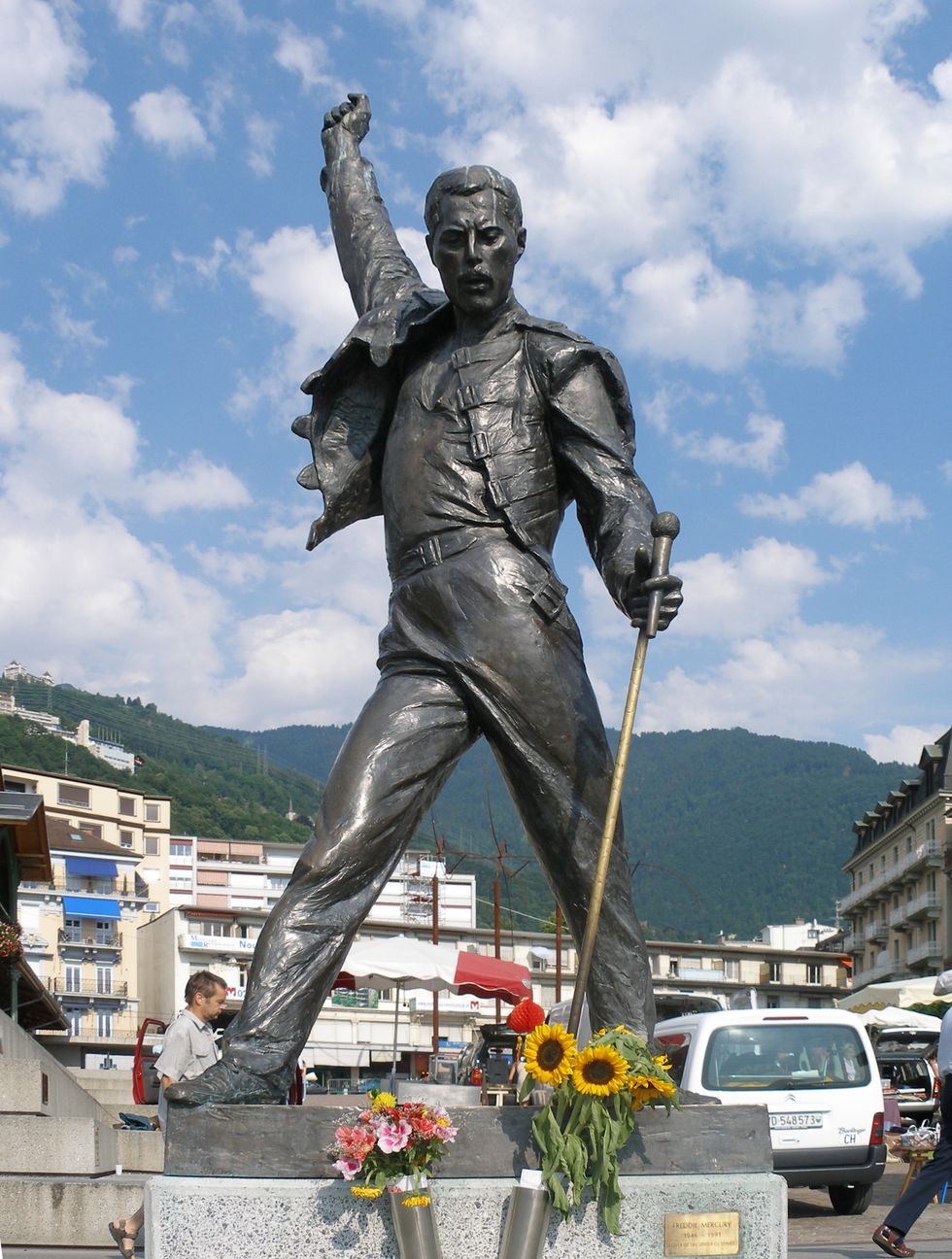
When we were texting earlier, you said something that really struck me: “My venues to fight fascism are limited as a mostly stay at home mom, but I consider watching Queen concerts with my son a form of resistance.” Why do you feel that way?
We have already seen this administration trying to erase trans people through executive orders, through cutting funding for gender-affirming care or medical care for trans youth, and that could unfortunately continue to expand and impact other communities underneath the LGBTQ+ umbrella. People in power now have a very particular point of view about what America should look like, and it doesn't include queer people. It doesn't include people who looked and dressed and performed the way Freddie did. Even ensuring your children see people like Freddie is a way of fighting against that. I also think this kind of authoritarianism goes very much hand-in-hand with a very narrow view of what masculinity looks like. As my son grows and develops his own identity as a man, being able to see a very wide variety of examples of what it means to be masculine and how masculinity can be expressed is important. People in power now want to fit everybody back into very small prescriptive boxes of, ‘this is what it means to be a man, full-stop, and this is what it means to be a woman, full-stop, and there's nothing in between.’ When I watch these videos with my son, when I watch Freddie perform, the word that comes to mind is freedom. I think in many ways a gift of the queer community to us poor straights is this reminder of what freedom looks like and that we all deserve it. That definitely moves in me when I watch these concerts with my kiddo.























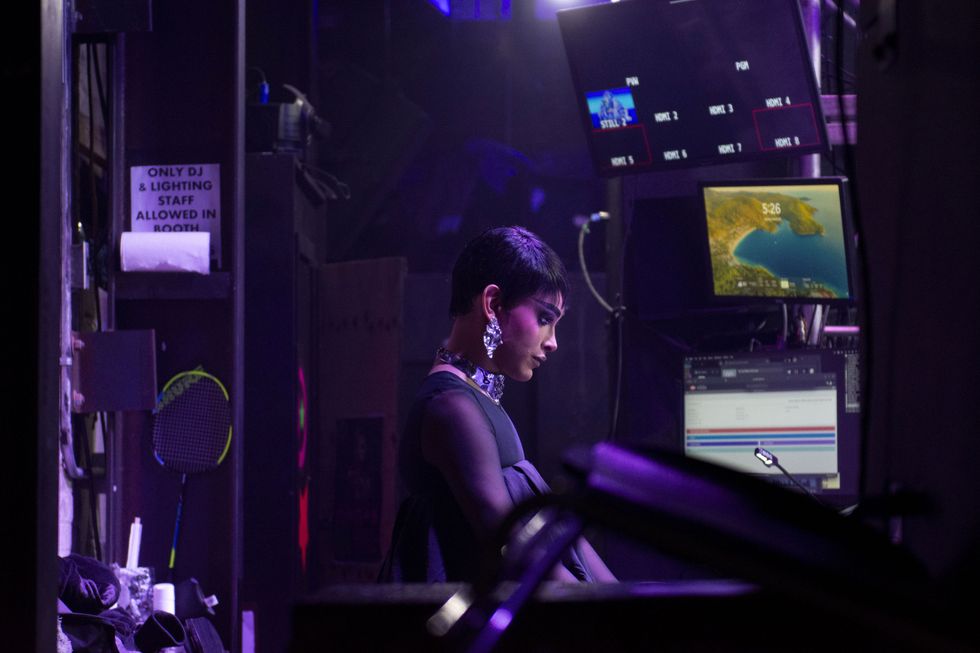 On March 30, Julie J gets organized in the DJ booth before Stand Up NYC begins at 3 Dollar Bill in Brooklyn. Elyssa Goodman
On March 30, Julie J gets organized in the DJ booth before Stand Up NYC begins at 3 Dollar Bill in Brooklyn. Elyssa Goodman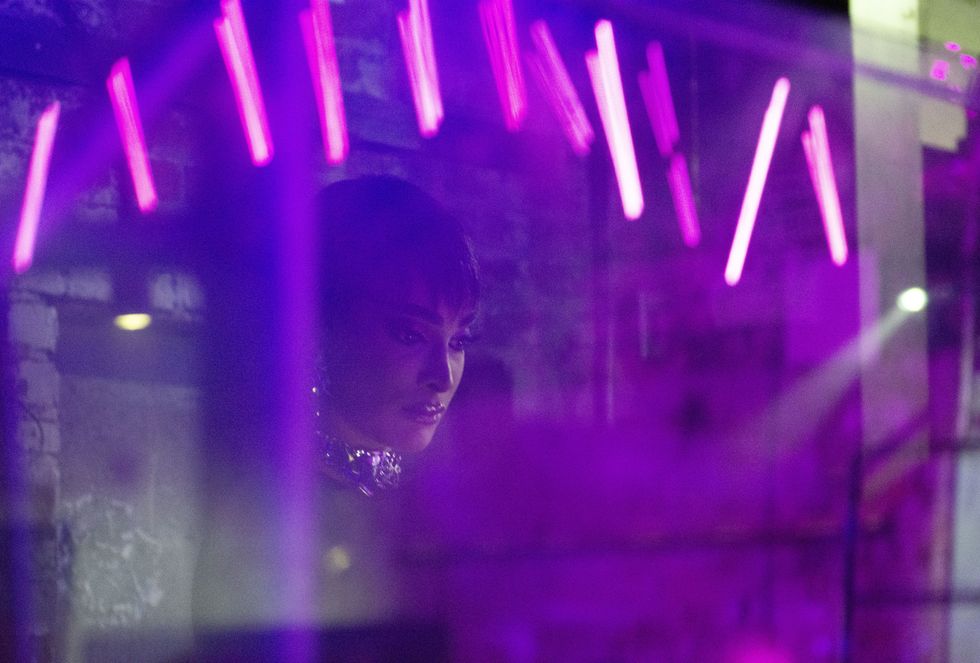 Julie J in the DJ booth. Elyssa Goodman
Julie J in the DJ booth. Elyssa Goodman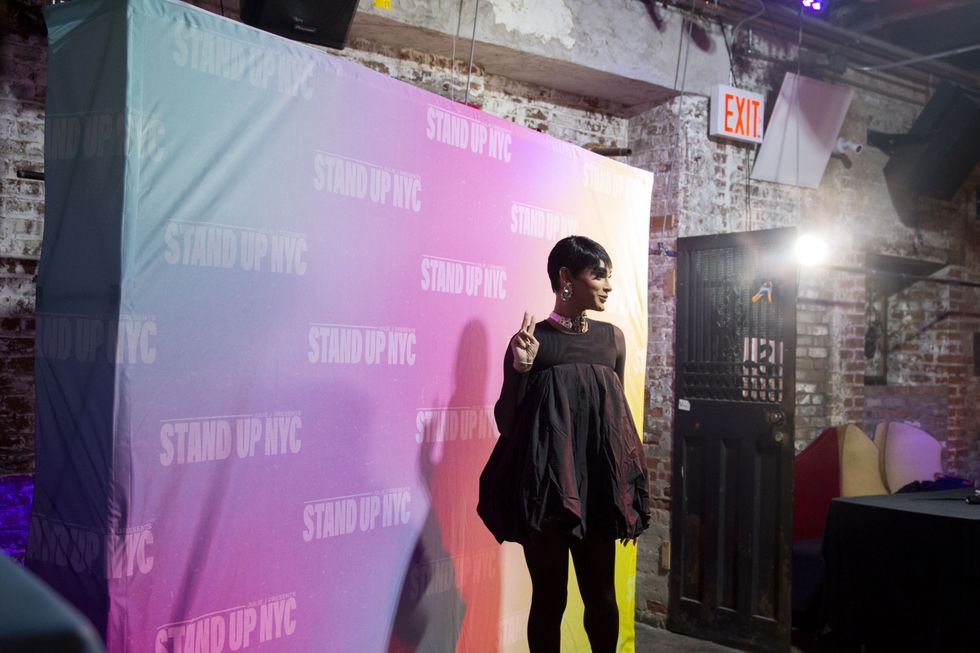 Julie J poses for pictures prior to the show's start. Elyssa Goodman
Julie J poses for pictures prior to the show's start. Elyssa Goodman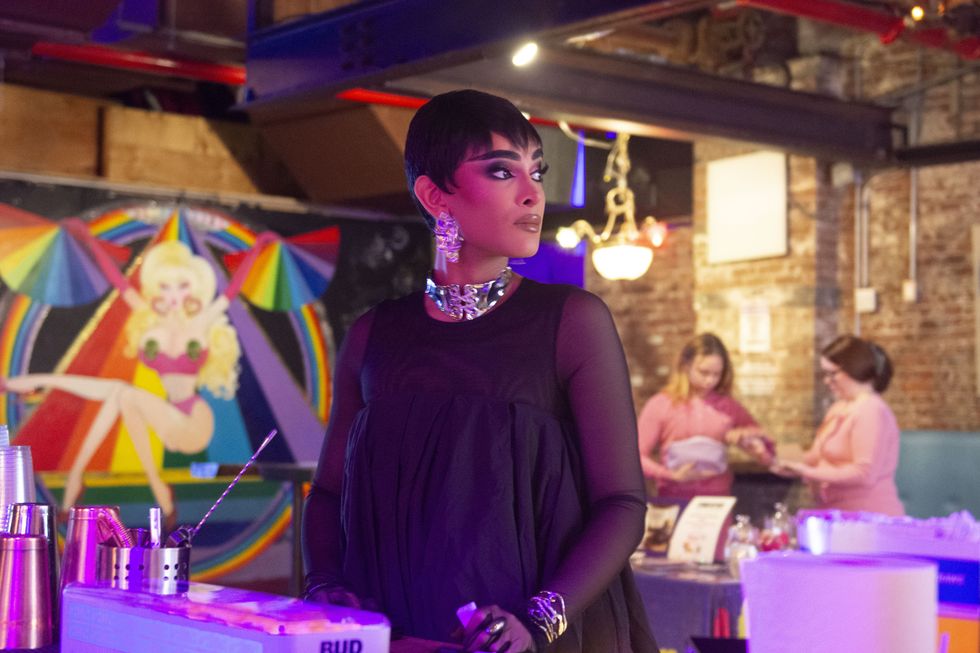 Julie J at 3 Dollar Bill before Stand Up NYC begins.Elyssa Goodman
Julie J at 3 Dollar Bill before Stand Up NYC begins.Elyssa Goodman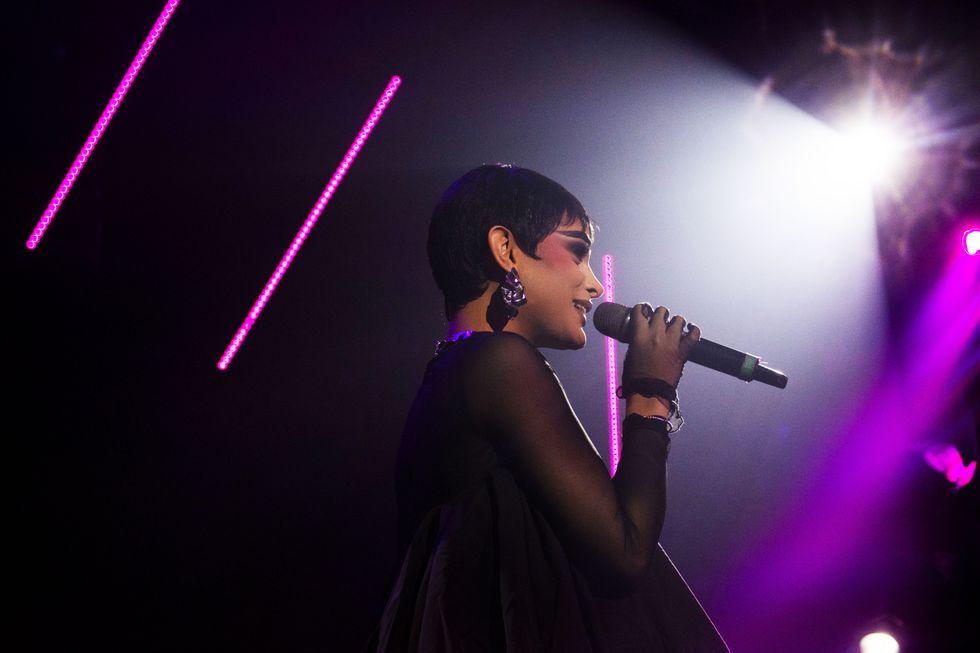 Julie J on stage co-hosting Stand Up NYC. Elyssa Goodman
Julie J on stage co-hosting Stand Up NYC. Elyssa Goodman